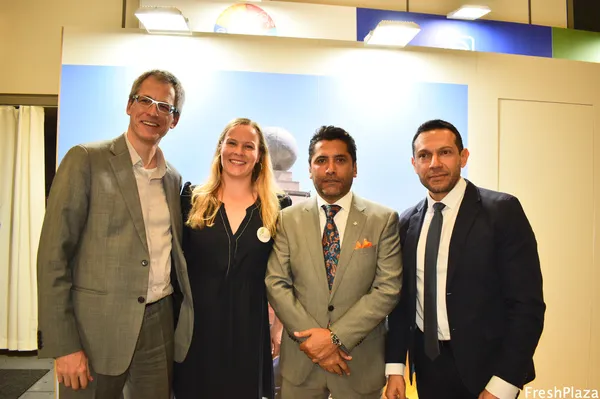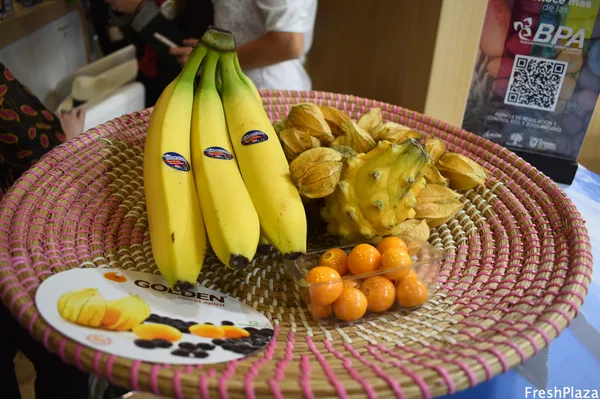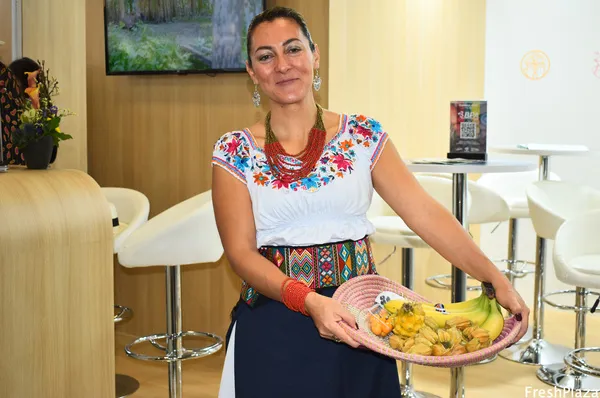This year, Ecuador was an official partner country for Fruit Logistica. During the exhibition the Minister of Agriculture, Mr. Xavier Lazo, launched the country’s new fresh produce brand “Ecuador: Premium and Sustainable.” The exhibition was also attended by Iván Ontaneda Berrú, the Minister of Production, Foreign Trade, Investment, and Fisheries.

According to Berrú, being a partner country of the event helped Ecuador position itself as an international and versatile producer of fresh, sustainable fruits and vegetables of the highest quality. “This year, as a partner land, we were able to show the world the strengths we have as a country. As a banana producing country, our focus is on traceability, good social, environmental, and labor practices, as well as meeting international certification standards.”
Expansion in European market
The most important fresh produce products grown and exported by Ecuador outside of bananas are mango, pitahaya, and pineapple and the most important markets for these are in the U.S., Chile, and Europe. “There was a considerable increase in exports of 19.16% in 2019 to Eastern European countries compared to the numbers from 2018, with the biggest increases found in Ukraine and Georgia,” says Berrú.
The Russian market is still a very important destination for Ecuadorian bananas, and it continues to grow. Berrú says: “In the past 10 years, Russia has become an increasingly important strategic market for our banana exports. In 2019, 21.26% of our total banana exports were allocated to this market, and we represent 96% of their total banana imports.”

Standing out from the competition
Surrounding countries such as Colombia, Costa Rica, and Honduras as also banana producers. “They are our direct competition,” says Berrú, “This means that for day-to-day producers and exporters, a focus on their quality processes, their traceability, and complying with phytosanitary standards is very important to help break into new markets and maintain the ones they have now.”
“One important practice we have adopted is marking the banana clusters of the same age with plastic tapes of a certain color for each week which avoids ripening issues during transit because the age is controlled when the bananas are cut from the trees,” Berrú says.
He adds: “Ecuador also has a lower chemical load because we have less fumigation cycles than other countries do, which is something that very much appreciated in the market.”
Commitment to sustainability
The Ministry of Production, Foreign Trade, Investments and Fisheries works together with both the public and the private sector to help strengthen the country’s exporters and producers, especially if these companies have shown their willingness to go beyond the established requirements. “Among strategies that are being carried out are pest control, improving productivity and quality, boosting and diversifying access to international markets,” Berrú shares.

Ecuador’s commitment to sustainability was showcased during Fruit Logistica. Berrú explains: “Sustainable banana production is needed to strengthen the sector. To do this, we have taken several production measures, such as the incorporation of social and environmental practices. Our producers and exporters work with the conviction that it is possible to produce a sustainable banana with high quality standards while working in harmony with nature and seeking to improve the quality of life of all people evolved in the supply chain.”
The ministry helps support these goals through its presence and participation in events such as Fruit Logistica, among others. Berrú concludes: “We will continue to work hand-in-hand with the producers to help them obtain international certifications, and help them have a competitive edge in the markets to ensure sustainability and productivity in the sector.”
For more information:
Juan Yepez Franco
PROECUADOR
Email: [email protected]
www.proecuador.gob.ec
